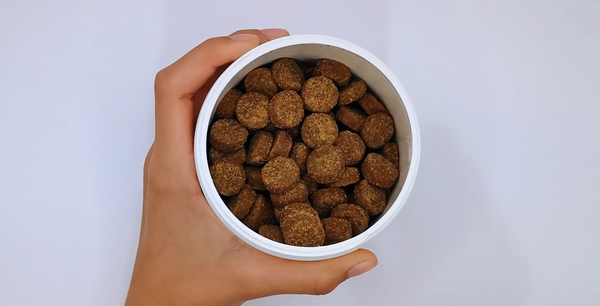
Why Dogs Eat Poop and How to Stop Them
Possible Reasons for Poop Eating
There are many possible reasons why dogs eat poop, ranging from medical to behavioral. Some of the most common ones are:
- Nutritional deficiencies: Dogs may eat poop because they are lacking certain nutrients in their diet, or because they have trouble absorbing them from their food. This can happen if they are fed a low-quality, unbalanced, or homemade diet, or if they have a health condition that affects their digestion, such as exocrine pancreatic insufficiency, diabetes, or Cushing’s disease. A blood test can help diagnose any nutritional or metabolic problems in your dog.
- Parasites: Dogs may eat poop because they have intestinal parasites, such as roundworms, hookworms, or whipworms, that steal nutrients from their food and cause inflammation and malabsorption. Parasites can also make poop more appealing to dogs, as they may contain eggs or larvae that stimulate their appetite. A fecal exam can detect any parasites in your dog’s stool.
- Behavioral issues: Dogs may eat poop because of various behavioral factors, such as boredom, anxiety, stress, attention-seeking, isolation, confinement, or inappropriate association with food. For example, dogs that are left alone for long periods, have limited access to toys or exercise, or are punished for pooping in the wrong place may resort to eating poop as a coping mechanism or a way to avoid trouble. Dogs that are fed near their poop, or that see their owners picking up their poop, may also associate poop with food and develop a habit of eating it.
- Innate predisposition: Dogs may eat poop because they have an innate tendency to do so, inherited from their wild ancestors. In the wild, dogs and wolves may eat poop to keep their den clean, to prevent the spread of parasites and diseases, to recycle nutrients, or to hide their scent from predators. Some dogs may retain this instinct and eat poop for similar reasons.
How to Stop Poop Eating
Depending on the cause of your dog’s poop eating, there are different strategies you can try to stop this behavior. Some of the most effective ones are:
- Improve your dog’s diet: Make sure your dog is getting a high-quality, balanced, and complete diet that meets their nutritional needs. You can consult your veterinarian or a canine nutritionist for advice on the best food for your dog. You can also add supplements, such as probiotics, enzymes, or vitamins, to your dog’s food to improve their digestion and absorption of nutrients. Avoid feeding your dog table scraps, human foods, or treats that may upset their stomach or trigger their poop eating.
- Treat any medical issues: If your dog has any health problems that may cause or contribute to their poop eating, such as parasites, diabetes, or Cushing’s disease, consult your veterinarian for diagnosis and treatment. Follow your veterinarian’s recommendations on medication, diet, and lifestyle changes for your dog. Regular check-ups and preventive care can help keep your dog healthy and reduce their risk of developing poop eating.
- Clean up the poop: The easiest way to prevent your dog from eating poop is to remove it as soon as possible. Scoop up your dog’s poop from your yard, garden, or any other place they have access to, and dispose of it properly. You can also use a spray or a powder that makes poop taste bitter or unpleasant to dogs; however, these products may not work for all dogs, and some may even become more interested in poop after using them.
- Train your dog: You can teach your dog to leave or drop the poop on command, using positive reinforcement and rewards. For example, you can say “leave it” or “drop it” when your dog approaches or picks up poop, and reward them with a treat or a toy when they obey. You can also redirect your dog’s attention to something else, such as a game or a walk, when they show interest in poop. Avoid scolding, yelling, or hitting your dog for eating poop, as this may only increase their anxiety, stress, or confusion, and make the problem worse.
- Provide mental and physical stimulation: Make sure your dog has enough opportunities to exercise, play, and socialize with other dogs and people. This will help them burn off excess energy, relieve boredom, reduce stress, and satisfy their curiosity. You can also provide your dog with interactive toys, puzzles, or chews that keep them entertained and mentally stimulated. A happy and busy dog is less likely to eat poop.
Conclusion
Poop eating is a common but unpleasant behavior in dogs that can have various causes and solutions. By understanding why your dog eats poop, and by following the tips above, you can help your dog overcome this habit and enjoy a healthier and happier life.

